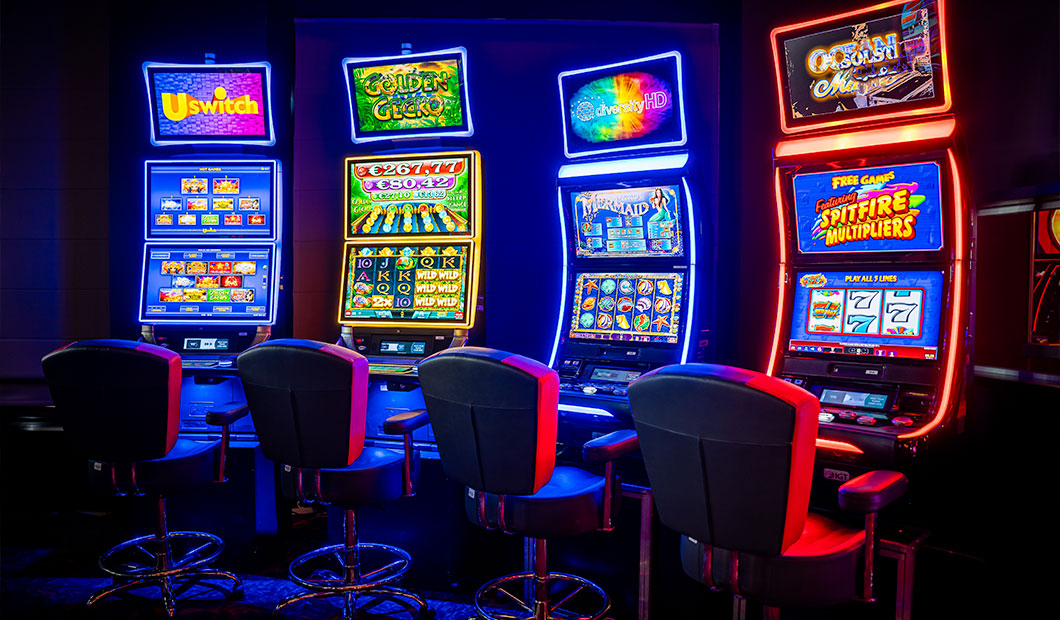
Casino experiences have enthralled players over the ages, progressing from basic recreational activities to sophisticated forms of entertainment that integrate luck, tactics, and amusement. 99ok From the ancient roots of gambling in civilizations such as ancient Mesopotamia and Rome to the dazzling corridors of current casinos, the evolution of these games uncovers much about our nature and our relationship with chance. As cultures have merged and technology has advanced, casino games have transformed, reflecting societal changes and advancements in gameplay.
The earliest forms of gambling likely involved simple dice-based games and placing bets on the outcomes of athletic contests. As time passed, these basic forms of gambling grew into more complex games like card games, roulette, and the multitude slot machines that fill casino floors today. Each period brought its distinct regulations, aesthetics, and social relevance. In the current era, casino games maintain their evolution with the rise of digital gaming platforms, enabling players from all corners of the globe to engage in a shared experience, further merging the traditional with the age of technology.
Ancient Roots of Gaming Activities
Gambling games have roots that reach back to old civilizations, where gambling was profoundly integrated in social traditions and social rituals. The first known forms of betting emerged in ancient Mesopotamia around three thousand BC, including basic dice activities made from knuckle bones. These early games laid the foundation for more complex gambling activities, demonstrating humans’ natural desire to find wealth and amusement through chance. xổ số 99ok
As civilizations progressed, so did their betting pursuits. In early China, around two thousand three hundred BC, tiles were found that resembled early rudimentary versions of a lottery game. More structured forms of gambling arose in the ancient Roman civilization, where activities of luck were a popular pastime, often taking place in community events. The ancient Romans developed multiple wagering games, which included dice and board activities, illustrating the pervasive nature of betting across different social strata.
With the passage of years, these primitive games contributed to the progress of modern casino games. In the Middle Ages, card games became prevalent in Europe, paving the way for the organized gambling venues we know today. The change from informal gambling to formal gambling in taverns and personal houses marked a major shift in how people interacted with games of chance, leading to the eventual creation of gaming houses as specialized places for betting.
The Rise of Current Gambling Industry
The final 20th century marked a significant transition in the world of gambling games, propelled by technological advancements and transformations in cultural attitudes towards betting. The introduction of personal computers and the internet revolutionized the way players engaged with their beloved casino games. Online casinos emerged, allowing gamers to enjoy timeless table games like poker and blackjack from the convenience of their homes. This new digital landscape not only broadened availability to casino games but also drew in a younger audience who found the ease and variety tempting.
As digital gaming gained momentum, so did innovations in gaming technology. The development of advanced programs and visual elements changed classic casino games into captivating experiences. Players could now connect with live live dealers through live streaming, bringing the vibe of physical casinos directly into their houses. This blending of in-person play with online platforms created a unique hybrid experience that boosted the community element of playing, making it possible for individuals to engage and compete with fellow gamers around the globe.
Furthermore, the rise of mobile gaming dramatically changed the gambling environment. With the widespread use of mobile phones and tablets, gamblers can enjoy their favorite gaming options everywhere, whenever. Mobile apps offer a wide selection of options tailored for mobile screens, serving the fast-paced lifestyle of modern users. This accessibility has produced rising engagement in casino games, fostering the rapid expansion of the gaming industry. As a result, the future of the gaming industry continues to evolve, adapting to new technologies and changing player expectations.
How Technology Influences Casino Games
The evolution of technology has significantly transformed casino games, improving the overall gaming experience for players around the world. As the internet emerged, online casinos emerged, allowing players to play their preferred games from the safety of their own homes. This change not only made casino games more available but also increased the variety of games available, as online platforms could host numerous variations of traditional games without the physical constraints of brick-and-mortar establishments.
Mobile technology further transformed the casino gaming landscape. With the proliferation, players now have the ability to engage in casino games anytime and anywhere. This flexibility has led to the creation of dedicated mobile applications and optimized websites that provide seamless gaming experiences. Additionally, advancements such as live dealer games have delivered the authentic atmosphere of a casino into players’ homes, bridging the gap between physical and online gaming.
Furthermore, advancements in AI and virtual reality are paving the way for the next generation of casino games. AI improves game design and player interaction, creating customized experiences based on user behavior and preferences. Meanwhile, virtual reality offers immersive environments where players can engage in a virtual casino environment, making the gaming experience more engaging and lifelike. As technology continues to evolve, the future of casino games seems bright, filled with limitless opportunities for innovation and entertainment.